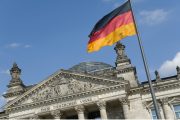
The mass backlash against globalist eco tyranny has the potential to give the dissident Right in Europe a unique opening to political power across the continent — a possibility the establishment recognizes and fears.
In a sign of the concern globalists have regarding the newfound union between the farming interests and the Right, a recent Politico piece raises the alarm about the “tie-up of far-right parties and furious farmers [that] is supercharging populist parties in the run-up to the EU election in June.”
Titled “How the far right aims to ride farmers’ outrage to power in Europe,” the piece notes that parties such as France’s National Rally and the Alternative for Germany are now gaining traction by aligning themselves with agricultural movements everywhere from Italy to the Netherlands — movements that have momentum due to restrictive policies provoking fears about losing control of farmland to the government.
Kevin Cunningham, a political scientist who works for the European Council on Foreign Relations (a globalist think tank that was launched with seed money from George Soros’ Open Society Foundations), told Politico, “Farmers’ anger has become a major issue for the far right across Europe. It may not be the number one issue, but it is surprisingly effective at crystalizing resentment over economic problems.”
As the European election campaign for June draws closer, indications from polls point to the alliance between farmers and populists contributing significantly to the rising allure of far-right parties among the European Union’s nearly nine million farmers. The opposition to the government’s favoring of inexpensive imports from Ukraine over local production, along with surges in diesel taxes amid inflation, is fostering increased dissatisfaction among farmers across the continent.
A Wednesday survey conducted by the European Council on Foreign Relations revealed that far-right parties are on track to secure the top position in nine EU countries, marking a substantial increase in their seats in the European Parliament. This aligns with Politico’s Poll of Polls, indicating that the right-wing Identity and Democracy group is set to gain seats, which would elevate it to the third-largest political group in the European Parliament.
The outlet further notes:
Pressure from the right is already pushing more mainstream conservative groups like the center-right European People’s Party to go on the attack against the Green Deal, which was a signature policy of European Commission President Ursula von der Leyen and her erstwhile environment czar, Frans Timmermans. The EPP led a rebellion against a so-called Nature Restoration law late last year, narrowly falling short of killing the bill — and now calls for unwinding a 2035 ban on the combustion engine.
Yet far-right groups like Identity and Democracy are looking to go much further. At an event hosted by the Viktor Orbán-linked MCC think tank in Brussels, right-wing EU lawmaker Patricia Chagnon openly praised the hardline farmer protest movement “Farmers’ Defense Force,” which she said had played a key role in “overthrowing” the Dutch government.
Von der Leyen has attempted to fight back against the wave of right-wing agricultural fury by holding talks with stakeholders in the farming and manufacturing sectors with the aim of achieving “more dialogue and less polarization” when it comes to agriculture policy.
In the Netherlands, continuous protests against a decision to reduce nitrogen emissions preceded and probably influenced the surprising triumph of right-wing populist Geert Wilders in last November’s national elections.
In Germany, the far-right, migration-reductionist AfD party has surged to second place in national polls by capitalizing on farmers’ protests to launch an offensive against Social Democrat Chancellor Olaf Scholz.
In France, the National Rally party is employing a similar strategy. Party president Jordan Bardella has accused centrist President Emmanuel Macron of deliberately harming the nation’s agriculture. The anti-EU party is considered a viable contender for a first-place finish in the EU-wide election.
Meanwhile, in Ireland and Italy, far-right populist parties have likewise drawn on the anti-establishment sentiment among farmers’ movements to pull agricultural support away from the industry’s traditional, leftist-aligned advocates, such as farmers’ parties and trade unions.
In particular, farmers are outraged at “technocrats” in Brussels who have allegedly overburdened local farmers with rules and regulations while forcing them to unfairly compete with foreign farmers under the guise of free trade.
“I think there’s a continental dimension to this phenomenon,” said right-wing EU lawmaker Nicolas Bay. “It’s European agriculture in its entirety that is suffering … and European farmers can no longer stand the free trade policies and types of farming that Brussels is trying to impose on them.”
The New American previously covered the mass protests by Dutch farmers over draconian emissions targets in 2022. The current union between agriculture and the political right, then, is not sudden, but is the inevitable result of a European political establishment that cares far more about climate-change ideology and lining the pockets of multinational corporations via free trade than it does about the economic well-being of its own people.





